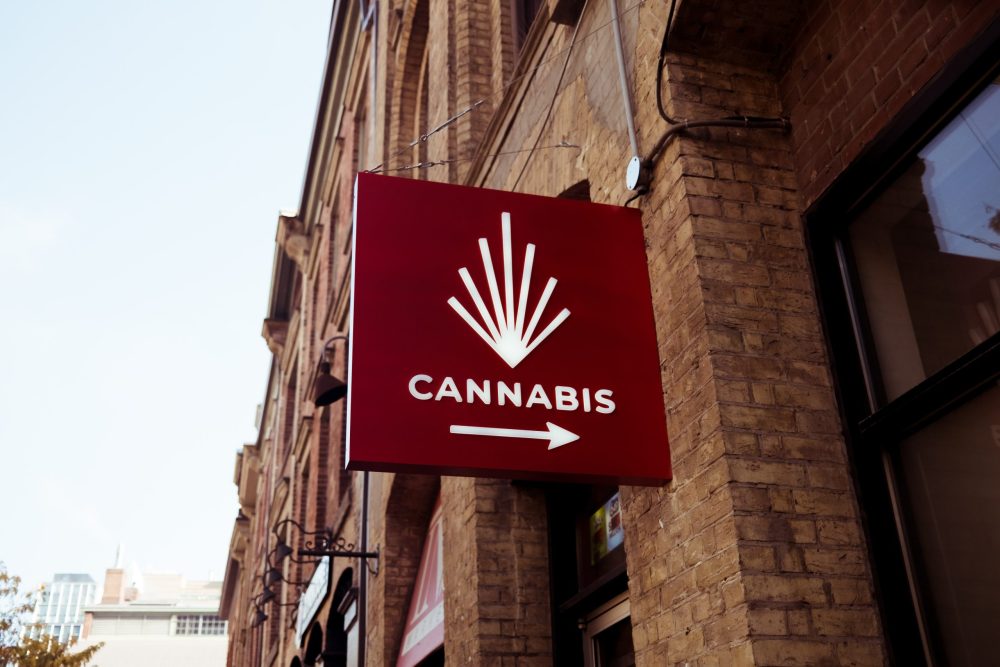Cannabis
Where Do Cannabis Users Buy Cannabis From: New Frontier Data Study
Licensed cannabis stores offer transparency for consumers that cannot be expected from unofficial dealers. At these stores, customers can receive detailed information about the product’s origin, THC content, CBD content, and even specific strains. This allows consumers to make informed decisions about what they buy and consume.

In most areas of the United States where adult-use cannabis is legal, consumers primarily buy it from retail stores rather than dealers, according to new data released by New Frontier Data.
Two in five respondents said they mainly use cannabis products from retail outlets. This is in stark contrast to the six percent of consumers who said they mainly buy cannabis from a “dealer.”
Read more on the subject and find the latest cannabis news of the day with the Hemp.im mobile app.
Cannabis from friends and family
Nearly a third of respondents indicated that they obtain cannabis from friends or family members. In states where adult sales are allowed, it is legal to gift cannabis to others without any compensation.
Nationally, 43 percent of current consumers said they obtained their cannabis from retailers, up from 34 percent a year earlier. The survey’s authors suggest that in many cases, residents of states where hemp is still illegal are traveling to neighboring states with legal access to purchase hemp products and returning home with them.
“These data indicate that the legal, regulated market is replacing the underground market,” commented NORML Deputy Director Paul Armentano. “Over time, consumers are prioritizing convenience and relying on licensed vendors – who offer greater convenience, product quality, and safety.”
Data from Canada, which legalized retail sales in 2018, shows a similar trend, with the percentage of consumers reporting getting cannabis from licensed suppliers increasing year-on-year.
Why do cannabis users prefer to buy from licensed stores rather than dealers?
While the market is growing strongly, more and more consumers are turning to licensed vendors instead of traditional “dealers.” There are several key reasons that explain this shift in preference.
Safety and product quality
The first and most important reason is safety. Licensed stores are regulated by various government agencies that control the quality of the product. When buying from a licensed retailer, consumers are assured that the product they receive is not contaminated, safe and free of dangerous substances. On the other hand, cannabis bought from dealers is not regulated, which creates risks associated with potentially harmful additives.
Credibility and transparency
Licensed cannabis stores offer transparency for consumers that cannot be expected from unofficial dealers. At these stores, customers can receive detailed information about the product’s origin, THC content, CBD content, and even specific strains. This allows consumers to make informed decisions about what they buy and consume.
Potential economic benefits
The third point focuses on potential economic benefits. Legalizing cannabis could generate significant tax revenue that can be reinvested in the community in the form of education, infrastructure, and other public services.
Personal freedom is a key argument for legalizing cannabis
Personal freedom is a fundamental right that is often raised in the context of the cannabis legalization debate. Proponents of legalization argue that adults should have the full right to decide about their bodies, including what they put into them, as long as it does not harm others. Consider this in the context of cannabis legalization.
End Discrimination
Finally, the issue of personal freedom is also linked to the problem of discrimination. The criminalization of cannabis leads to social inequality, as some groups are punished more often than others for its possession or use. Legalizing cannabis could help end these unjust practices.
In conclusion, the arguments for legalizing cannabis focus on improved public safety, reduced criminal activity, economic benefits, potential health benefits, and basic personal freedoms. These arguments are important to consider in the context of the debate over the legalization versus the criminalization of cannabis.
__
(Featured image by Wendy Wei via Pexels)
DISCLAIMER: This article was written by a third-party contributor and does not reflect the opinion of Born2Invest, its management, staff or its associates. Please review our disclaimer for more information.
This article may include forward-looking statements. These forward-looking statements generally are identified by the words “believe,” “project,” “estimate,” “become,” “plan,” “will,” and similar expressions. These forward-looking statements involve known and unknown risks as well as uncertainties, including those discussed in the following cautionary statements and elsewhere in this article and on this site. Although the Company may believe that its expectations are based on reasonable assumptions, the actual results that the Company may achieve may differ materially from any forward-looking statements, which reflect the opinions of the management of the Company only as of the date hereof. Additionally, please make sure to read these important disclosures.
First published in Fakty Konopne, a third-party contributor translated and adapted the article from the original. In case of discrepancy, the original will prevail.
Although we made reasonable efforts to provide accurate translations, some parts may be incorrect. Born2Invest assumes no responsibility for errors, omissions or ambiguities in the translations provided on this website. Any person or entity relying on translated content does so at their own risk. Born2Invest is not responsible for losses caused by such reliance on the accuracy or reliability of translated information. If you wish to report an error or inaccuracy in the translation, we encourage you to contact us.

-

 Markets2 weeks ago
Markets2 weeks agoThe Big Beautiful Bill: Market Highs Mask Debt and Divergence
-

 Africa2 days ago
Africa2 days agoORA Technologies Secures $7.5M from Local Investors, Boosting Morocco’s Tech Independence
-

 Markets1 week ago
Markets1 week agoA Chaotic, But Good Stock Market Halfway Through 2025
-

 Business4 days ago
Business4 days agoThe Dow Jones Teeters Near All-Time High as Market Risks Mount

























